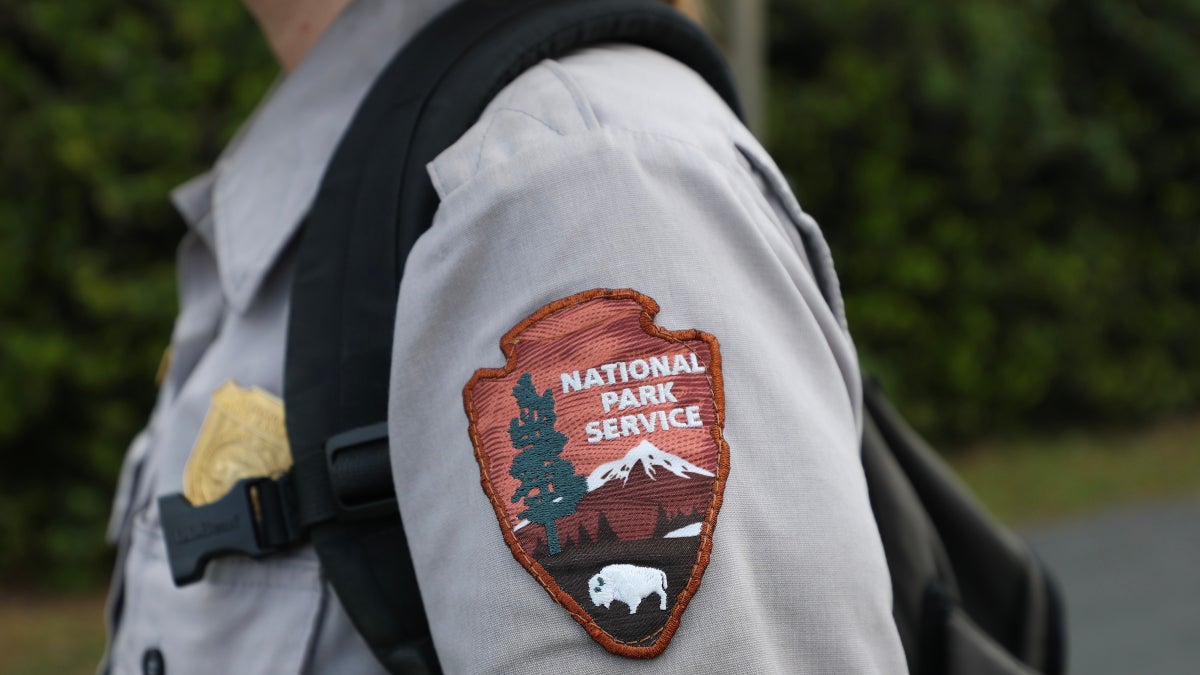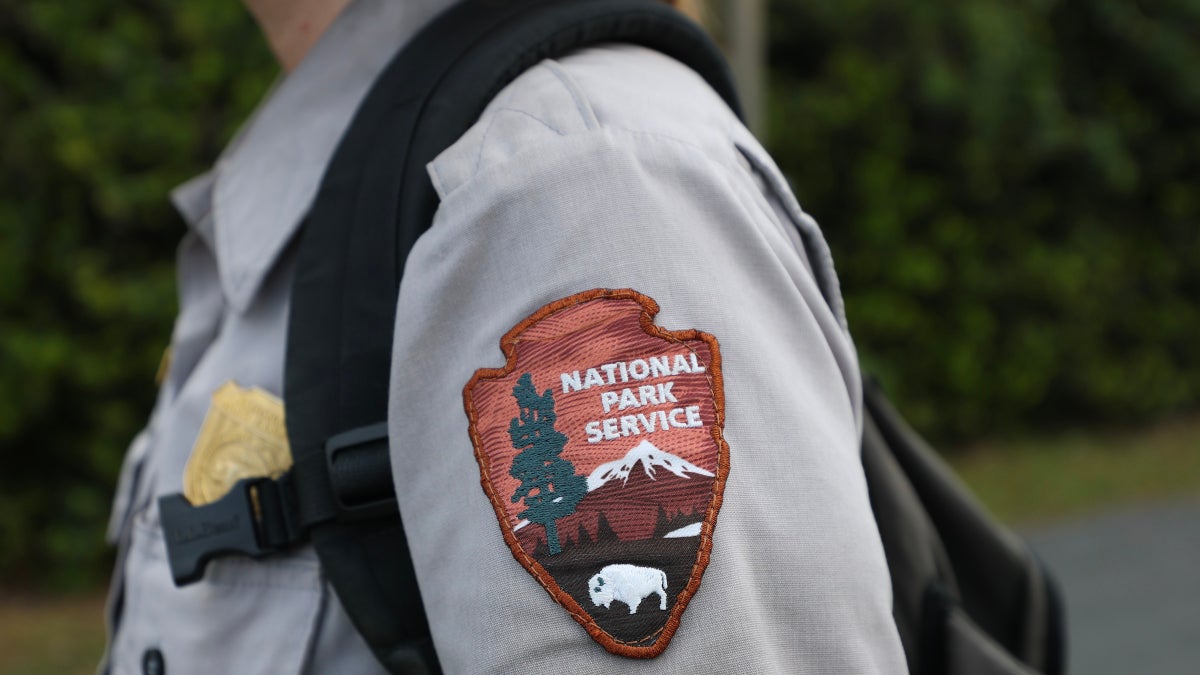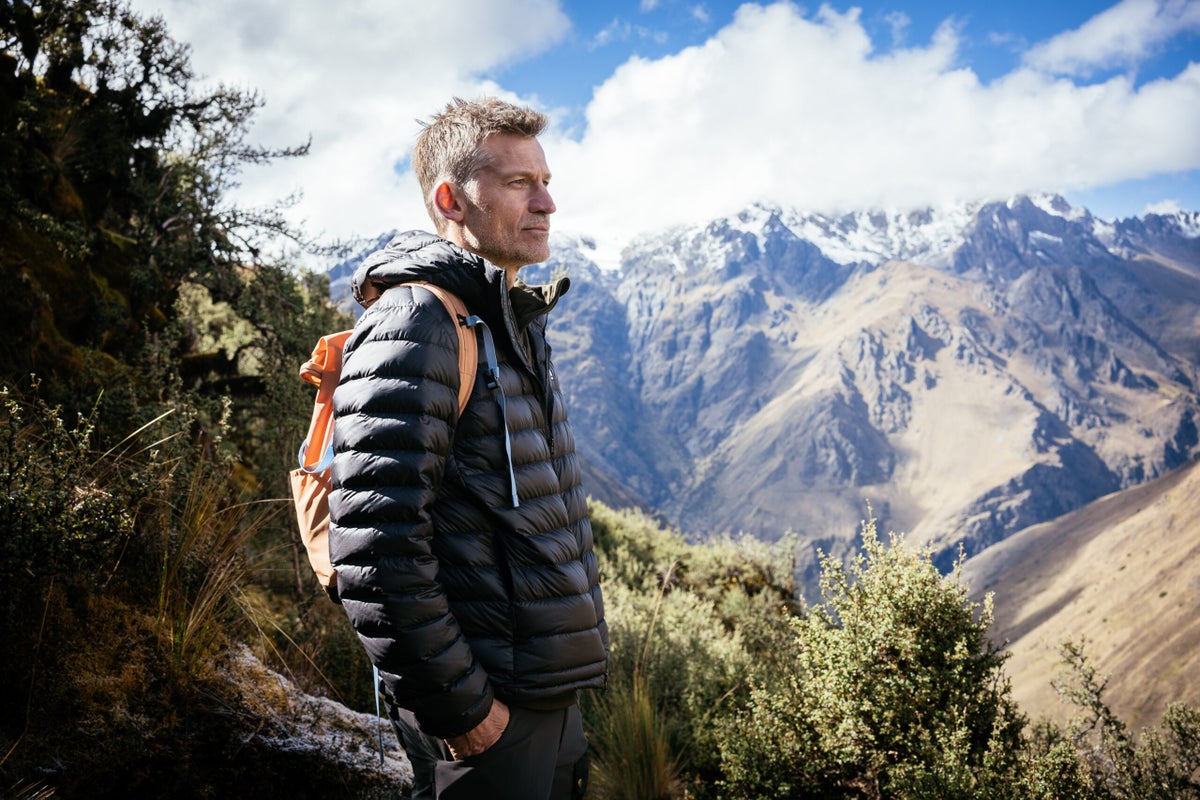
This story was produced in partnership with RE:PUBLIC Lands Media, an independent, nonprofit news organization.
It’s a perfect fall afternoon in Colorado’s Rocky Mountain National Park and I am on a guided hike alongside 15 strangers just a few miles beyond the park’s eastern entrance. As we click away with our iPhone cameras, our leader, a bearded 32-year-old named Adam Auerbach, regales us with the park’s history: In 1915, President Woodrow Wilson officially created it with the stroke of his pen. Lobbyists from mining and logging companies urged the federal government to rethink the decision, Auerbach says, setting up a century-long fight between the park and the extraction industry.
“People need to realize that the fight to protect places like this doesn’t end with the founding of a national park,” Auerbach says. “The fight will always be there, and every generation will have to fight.”
This hike, Auerbach tells us, is his way of continuing the battle. Since June 2025, he has led a series of what he calls “advocacy hikes” for anyone who wants to show up. During the outings, which he promotes on social media, Auerbach discusses the Trump Administration’s staffing and budget cuts to the National Park Service (NPS) and other public lands agencies, and how those cuts are impacting Rocky Mountain National Park (RMNP) and the people who work there.
Auerbach worked as a seasonal ranger at RMNP from 2016 until 2019, and his social circle includes full-time NPS rangers who still work in the park. But these staffers have been strictly forbidden from speaking publicly about the cuts. The administration has posted so-called “snitch signs” at NPS sites, urging the public to blow the whistle on rangers who are critical about the administration, the NPS, and even U.S. history.
Amid this information crackdown, Auerbach has become a rare leak. Nobody from the RMNP has told Auerbach to stop these hikes, or to apply for a permit, he tells me. He shares details about the cuts, as well as the feelings of rangers, with anyone who will listen. “I don’t envy my former colleagues,” Auerbach says. “For them, it’s a management of risk tolerance. They know they can lose their jobs if they are too outspoken.”
Among our group are several students from the University of Colorado’s Masters of the Environment graduate program—Auerbach is a recent grad, and he is now working with a public lands advocacy group called Next Interior. There are also a handful of out-of-state hikers who saw the message online and were intrigued. The rest are locals from Boulder, Fort Collins, and the surrounding areas who, like me, wanted to learn more about the shutdown and its impact on RMNP.
In the weeks after the cuts, additional rangers took buyouts or retired. A federal hiring freeze prevented the NPS from replacing the open positions, leaving between 30 and 40 unfilled full-time jobs at RMNP. The park employs approximately 150 full-time rangers throughout the year, a former RMNP official told me, and it’s staff increases to about 350 in the summer with the addition of seasonal and part-time workers. Auerbach shares anecdotes of park employees having to work two or three different positions in addition to their specialty job. “If you lose that much staff, you have to divert people to those positions,” he says. “There’s this veneer that parks are still operating and doing well after the cuts. They aren’t.”
And Auerbach shares his gravest concern for RMNP amid the staffing cuts. While daily life inside the park may appear hunky dory to visitors, the NPS’s intense focus on superficial tasks like toilets and trash may leave it vulnerable to more existential threats: climate change, wildfire, and invasive plants and animals. “My fear is that Rocky will stumble through a year or two and still appear functional,” he says. “But it’s going to fail in its mission of protecting its natural wonders for future generations.”
Auerbach’s fears became heightened in early October when the federal government shut down. The Interior Department ordered all NPS sites to remain open, even as the overwhelming majority of full and part-time staff were either furloughed or let go. During previous shutdowns, national park sites have endured a long list of environmental harm: overflowing trash cans, damaged conservation sites, hikers venturing way off trail.
This cut was severe enough to impact even the communications team with the park. When Outside and RE:PUBLIC reached out to the NPS to comment on this story, we received a bounce-back email.
“Due to the lapse in appropriations, I am out of the office and not authorized to work during this time,” read the message. “I will respond to your messages when I return.”
But Outside spoke to full-time employees at RMNP and other sources for this story, and the information and perspective shared with Outside and RE:PUBLIC not only supported Auerbach’s opinions, but presented a stark picture of life inside the park.
The post The Rangers Are Not Alright appeared first on Outside Online.













